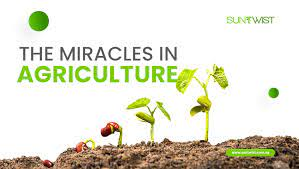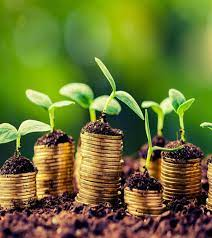The miracle of agriculture
With the domestication of plants and animals, humans were able to settle in one place and create permanent settlements, leading to the development of civilizations. Agriculture allowed for the production of surplus food, which in turn enabled the growth of towns and cities, the specialization of labor, and the development of complex social and political systems.
The Miracle of Agriculture also had profound effects on the environment. The widespread clearing of land for farming led to the loss of forests and other natural habitats, as well as soil erosion and other forms of environmental degradation. Nevertheless, the benefits of agriculture in terms of sustaining human societies cannot be overstated.
Today, agriculture continues to be a vital part of human civilization, providing food, fuel, fiber, and other essential resources. The development of modern agricultural technologies and practices has increased the productivity and efficiency of farming, allowing us to feed a growing global population while minimizing the impact on the environment.





Comments
Post a Comment